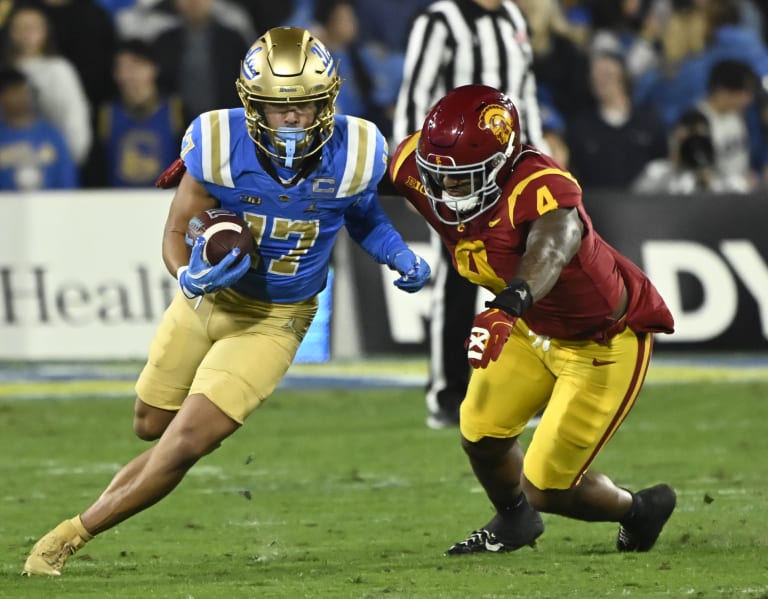Minnesota
Minnesota Lawmakers Pass Marijuana Legalization Bill

The Minnesota state legislature on Saturday passed a bill to legalize recreational marijuana, capping off a legislative process that saw dozens of committees scrutinize the proposal before its passage. The bill now heads to the desk of Democratic Gov. Tim Walz, who has pledged to sign legislation to legalize cannabis for adults. If Walz signs the bill as expected, Minnesota will become the 23rd state in the nation to legalize recreational marijuana.
A conference committee reached a consensus on the legislation on Tuesday after meeting three times to reconcile discrepancies between separate bills passed by the Minnesota House of Representatives and the state Senate last month. The final version of the bill was passed by House on Thursday by a vote of 73-57, followed by passage in the Senate by a vote of 34-32 in the early morning hours on Saturday.
“It has been an incredible journey … to get this bill to this place,” Democratic state Rep. Zack Stephenson, the sponsor of the legislation in the House, said in a statement quoted by the StarTribune after the conference committee reached an agreement on the marijuana legalization bill on Tuesday.
Minnesota lawmakers have passed a bill to legalize recreational marijuana, giving Democratic Gov. … [+]
The legislation will legalize the possession of up to two pounds of marijuana and the limited home cultivation of cannabis by adults aged 21 and older beginning this summer. Under the bill, adults would be allowed to grow up to eight cannabis plants at home, including four mature, flowering plants.
Legislation Legalizes Regulated Marijuana Sales
The bill also legalizes commercial cannabis activity, with regulated sales of recreational marijuana coming after rules are drafted and approved by the Office of Cannabis Management, a new state agency created by the legislation. The new agency will also regulate medical marijuana, which was legalized in Minnesota in 2014, as well as cannabis products derived from hemp.
Once regulated sales of recreational marijuana begin, adults will be permitted to purchase up to two ounces of cannabis, eight grams of cannabis concentrate and edible products containing up to 800 milligrams of THC, the cannabis compound largely responsible for the classic marijuana “high.” Sales of recreational pot will likely begin sometime in 2024.
Minnesota Democratic state Sen. Lindsey Port, the sponsor of the Senate bill, said that drafting the legislation, at nearly 300 pages, “has been a huge team effort.”
“Rep. Stephenson and I remain absolutely committed to getting this bill passed this year,” said Port.
The legislation sets a tax rate of 10% on recreational cannabis products, with 20% of revenue collected directed to local governments. Cities and counties would have a role in the licensing of cannabis companies, including a provision of the bill that allows cities to set a cap on the number of marijuana dispensaries in their jurisdictions. Local governments that opt to limit the number of retailers could set a cap of one shop for every 12,500 residents, according to the legislation.
Bill Advances Cannabis Social Equity
Minnesota’s cannabis legalization bill includes social equity measures designed to address harms caused by nearly a century of prohibition and ensure participation in the newly legal cannabis industry by individuals convicted of marijuana-related offenses or their family members. The legislation also grants social equity status to military veterans or active service members who were denied honorable status because of a cannabis offense, farmers from underrepresented communities and residents of areas that “experienced a disproportionately large amount of cannabis enforcement.”
The legislation also includes measures to expunge past convictions for misdemeanor marijuana offenses and for sentence reductions for some more serious crimes. The automatic process is expected to begin in August, but completing all expungements could take until next year. Drew Evans, superintendent of the Minnesota Bureau of Criminal Apprehension, said that there are tens of thousands of marijuana-related criminal records that need to be reviewed. He also said that a court order might be needed to guide how criminal background checks conducted by out-of-state entities would be reported.
“We’ll be doing this as rapidly as we can, but we want to get it right,” Evans told Minnesota Public Radio. “So it has to be done right so that anybody that is entitled to relief receives that relief and vice versa.”
Gracie Johnson, policy director at Last Prisoner Project, a nonprofit working to secure the release of all cannabis prisoners, praised the expungement and resentencing provisions in Minnesota’s marijuana legalization legislation.
“By expunging some old cannabis records automatically— without requiring the individual to petition the court—Minnesota is taking responsibility for the damaging impact prohibition has had on its people,” Johnson writes in an email. “A cannabis criminal record can prevent someone from getting a job, securing housing, furthering their education, and even chaperoning their children’s field trips. Minnesota also took the critical step to provide a pathway to resentencing for people still serving cannabis-related punishments. “
“Continuing to imprison people for prohibition-era sentences is an unjust and counterproductive use of state resources,” adds Johnson.
Possession of marijuana is expected to become legal in Minnesota this summer, but regulated sales of … [+]
The bill includes provisions that allow Minnesota’s current medical marijuana providers to grow, process and retail adult-use cannabis under a “medical combination” license created by the conference committee. The state’s two existing providers will be permitted to remain vertically integrated, while only small and medium recreational marijuana companies will be licensed for seed-to-sale operations.
If Walz signs the bill as expected, Minnesota will be the 23rd state in the United States to legalize marijuana for adults. Travis Copenhaver, a partner at the cannabis and psychedelics law firm Vicente LLP, says that the legislation reflects the evolution of cannabis reform policy as more states join the fold.
“Minnesota’s recent legislative efforts clearly demonstrate insights from the lessons learned from other legal states in the Great Lakes region, including reasonable possession and home cultivation provisions, automatic expungement relief, and promising social equity components,” Copenhaver writes in an email. “All signs continue to indicate that Governor Walz will sign a legalization bill soon, perhaps before the end of May.”

Minnesota
A look at Minnesota's revamped wide receiver room for 2025

Entering this transfer portal, Minnesota’s wide receiver room was a major focus for P.J. Fleck and his coaching staff.
It shouldn’t be a surprise. Entering the offseason, the Gophers were set to say goodbye to both Daniel Jackson and Elijah Spencer. Behind them, the depth at the position was highly inexperienced outside of Le’Meke Brockington. The only other receiver to appear in more than 10 games this season was Cristian Driver who had a limited impact in 2024.
Now with the Gophers putting the finishing touches on their transfer portal class this window, three of the program’s top four commitments in the portal are wide receivers.
This month, the Gophers have landed wide receiver commitments out of the protal. Those additions come in the forms of; Nebraska’s Malachi Coleman (No. 90 overall transfer), Miami (OH)’s Javon Tracy (No. 97 overall transfer), and UCLA’s Logan Loya (No. 222 overall transfer).
Combined, the three wide receivers bring 88 career games of experience with them and over 1,500 career snaps.
Minnesota
NEXT Weather: 10 p.m. report for Minnesota on Dec. 25, 2024

Watch CBS News
Be the first to know
Get browser notifications for breaking news, live events, and exclusive reporting.
Minnesota
MSU Alum Having Career Year for Minnesota Vikings

Former Michigan State wide receiver and current Minnesota Viking Jalen Nailor has been terrific in his third season in the pros. As the third wide receiver on the field alongside Justin Jefferson and Jordan Addison, Nailor has improved his career numbers in his now third year in the league.
Drafted in the sixth round of the 2022 NFL Draft out of MSU, the Vikings landed a strong piece to an even stronger offense in the Vikings. Nailor’s efforts since joining the Vikings have provided the franchise comfort knowing he is out on the field.
In his first season, Nailor played in 15 games, recording nine receptions in 13 targets. He posted 179 receiving yards in his rookie campaign, averaging 19.9 yards per reception. Receiving seven first downs in Year 1, the Vikings looked to get Nailor more involved on the roster in Year 2.
Though the team wanted to get more out of Nailor, they were unable to due to Nailor’s lack of time on the field. In his second season, Nailor only played in six games. In the six games, Nailor totaled only three receptions that went for 29 receiving yards. Nailor received one first down on the season before he was inactive in Weeks 15, 16 and 17.
In what would be a do-or-die season after a lackluster second-season campaign, Nailor made sure he reminded Viking fans why he belonged. Playing in 15 games for the Vikings this season, Nailor has dropped career highs in four different statistical categories. MSU fans should be proud of their former Spartan.
Nailor has 20 receptions, which is one of his new career highs, and he has totaled 280 yards, averaging 14 yards per reception. His best game on the season came against the Detroit Lions back in Week 7, where he recorded four receptions in five targets and got 76 receiving yards, averaging 19 yards per reception.
As the Vikings approach the postseason, Nailor should be a key piece to a deep playoff run if the Vikings make it as far. Minnesota, going into Week 17, has a record of 13-2 and should continue to be a force to take seriously for whoever it faces in the playoffs.
Don’t forget to follow the official Spartan Nation Page on Facebook Spartan Nation WHEN YOU CLICK RIGHT HERE, and be a part of our vibrant community group Go Green Go White as well WHEN YOU CLICK RIGHT HERE
-
/cdn.vox-cdn.com/uploads/chorus_asset/file/24924653/236780_Google_AntiTrust_Trial_Custom_Art_CVirginia__0003_1.png)
/cdn.vox-cdn.com/uploads/chorus_asset/file/24924653/236780_Google_AntiTrust_Trial_Custom_Art_CVirginia__0003_1.png) Technology5 days ago
Technology5 days agoGoogle’s counteroffer to the government trying to break it up is unbundling Android apps
-

 News6 days ago
News6 days agoNovo Nordisk shares tumble as weight-loss drug trial data disappoints
-

 Politics6 days ago
Politics6 days agoIllegal immigrant sexually abused child in the U.S. after being removed from the country five times
-

 Entertainment1 week ago
Entertainment1 week ago'It's a little holiday gift': Inside the Weeknd's free Santa Monica show for his biggest fans
-

 Lifestyle7 days ago
Lifestyle7 days agoThink you can't dance? Get up and try these tips in our comic. We dare you!
-
/cdn.vox-cdn.com/uploads/chorus_asset/file/25672934/Metaphor_Key_Art_Horizontal.png)
/cdn.vox-cdn.com/uploads/chorus_asset/file/25672934/Metaphor_Key_Art_Horizontal.png) Technology2 days ago
Technology2 days agoThere’s a reason Metaphor: ReFantanzio’s battle music sounds as cool as it does
-

 Technology1 week ago
Technology1 week agoFox News AI Newsletter: OpenAI responds to Elon Musk's lawsuit
-

 News3 days ago
News3 days agoFrance’s new premier selects Eric Lombard as finance minister








/cdn.vox-cdn.com/uploads/chorus_asset/file/24182143/226402_Android_Smartwatch_Buyers_Guide_WJoel.jpg)










